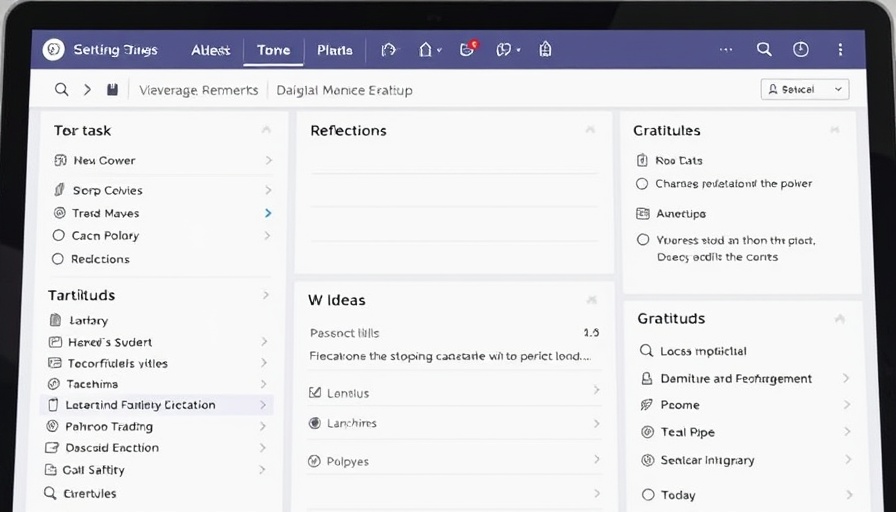
Mastering the 30-60-90 Day Plan: Your Roadmap to Success
Creating an effective 30-60-90 day plan is essential for leaders looking to make a significant impact in their new roles or when steering their business ventures toward rapid growth. This structured approach serves as a practical guide, helping you visualize your goals and the steps necessary to achieve them.
Why a 30-60-90 Day Plan is Essential for Business Owners
For business owners generating $2M–$10M+ in annual revenue, the right onboarding strategy can set the tone for productivity and alignment across teams. This plan divides your journey into three distinct phases:
- 30 Days: Familiarize yourself with the current state of the business, assess existing workflows, and identify immediate needs.
- 60 Days: Begin to implement changes based on your initial assessments, enhancing collaboration among departments.
- 90 Days: Evaluate the impact of your changes and set long-term operational goals.
Key Elements of an Effective Onboarding Strategy
To ensure these phases are productive, consider including these elements in your 30-60-90 day plan:
- Project Management Software Tools: Utilizing tools that streamline project management can dramatically improve workflow efficiency. Look for software that facilitates real-time collaboration, automations, and a centralized location for all documentation.
- Streamlined Processes: Analyze and refine your existing processes. Reducing unnecessary steps can save time and resources while boosting productivity.
- Team Collaboration: Engage your team early. Open lines of communication foster collaboration, ensuring that everyone is aligned with your vision.
Common Misconceptions About 30-60-90 Day Plans
Many believe that these plans are merely checklists. However, they are dynamic frameworks that should be adaptable to new information and changing circumstances, fostering continuous improvement and responsiveness.
Steps for Implementation: Turning Plans Into Action
Once you've crafted your 30-60-90 day plan, it's crucial to translate it into actionable steps. Create a checklist of key milestones and use charts to visualize progress. Regular check-ins with your team will keep everyone focused and accountable.
The Future of Onboarding: Trends to Watch
As more companies gravitate towards remote operations, expect onboarding strategies to become increasingly digital. Embracing technologies like virtual onboarding sessions, personalized software training, and digital feedback channels will be vital.
If you're ready to streamline your business operations and enhance productivity through a structured approach, now is the time to implement a 30-60-90 day plan. Let this framework guide you toward sustainable growth and allow your team to thrive in an organized, efficient environment.
Take charge today by adopting a comprehensive framework tailored to your business needs!
 Add Row
Add Row  Add
Add 



Write A Comment